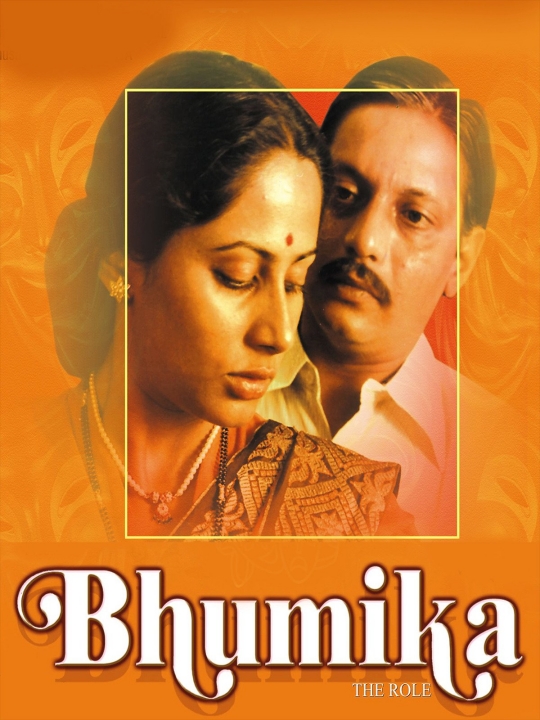A young woman-turned-actress forced into the Bollywood entertainment industry tries to escape loneliness through a myriad of love affairs in this melancholic tale starring the great Smita Patil.

Dir. Shyam Benegal
1977 | India | Drama | 136 mins | 1.85:1 | Hindi
PG (passed clean)
Cast: Smita Patil, Anant Nag, Naseeruddin Shah
Plot: The film follows the life of a successful film star, revealing her increasing alienation in a role both glamorized and patronized by society. After being forced into show business by her family, she spends her time between studios and disastrous love affairs, and feels more and more dissatisfied.
Awards: Won Best Actress & Screenplay (National Film Awards)
Source: Shemaroo Entertainment
Accessibility Index
Subject Matter: Moderate – Gender, Society
Narrative Style: Slightly Complex
Pace: Normal
Audience Type: Slightly Arthouse
Viewed: MUBI
Spoilers: No
From the director of Ankur (1974), Bhumika is a sprawling effort by Shyam Benegal that is loosely based on the life of an actor from the ‘40s.
Spanning more than two decades, including WWII and the death of Stalin (which we gather from a radio broadcast), Bhumika stars the great Smita Patil as Usha, who comes from a lower-caste family living poorly in the village.
She is forced into the entertainment industry as a singer and actress, blossoming into a star but not necessarily enjoying it. As the pressure of being a Bollywood star gets to her, she becomes disillusioned.
Despite having a husband and a young daughter, she becomes involved in a myriad of love affairs with her co-stars and other men to escape loneliness. Patil is fantastic, channelling emotional stressors into a deep sense of melancholia as Usha tries to understand what it means to have freedom from self.
Intercutting scenes of her personal domestic life with the ‘glamour’ of being on set (including being subjugated by the male gaze all the time), as well as her present life as an adult with sepia-toned sequences of her childhood, Bhumika is quite an ambitious and perhaps dense work about a woman’s continuous plight.
But as Usha journeys from one man to another in hopes of salvation (a narrative trajectory that may feel unnecessarily elongating to some), the film also questions whether a woman’s right to create a life for her own can exist in a wholly patriarchal society.
The paradox, it seems, is that the further Usha goes to untangle the ropes that bind her, the more entangled she becomes. At least, she has some respite performing the traditional song-and-dance routines synonymous with Bollywood, which Benegal shows in abundance and perhaps with ironic intent.
Grade: A–











